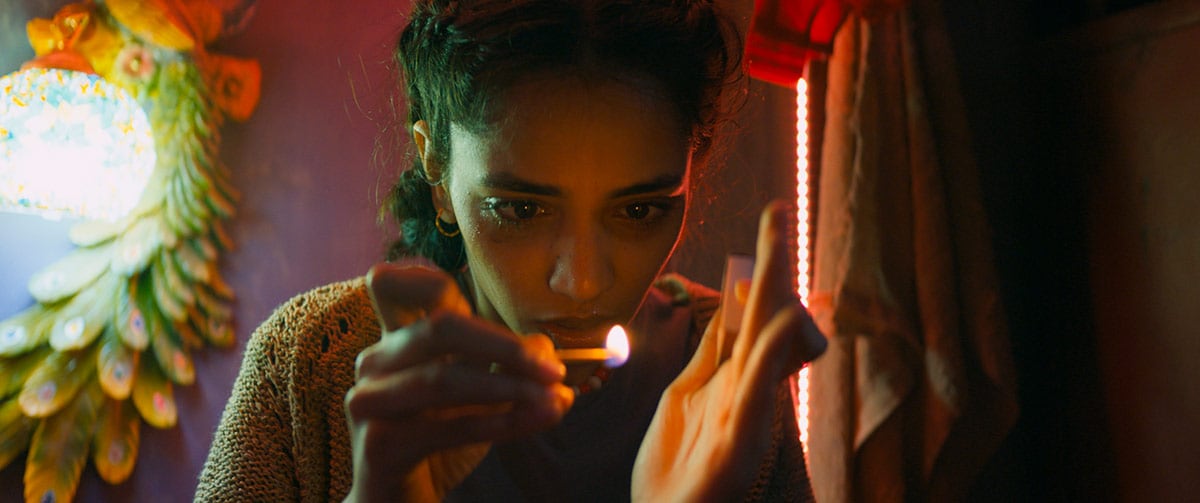At the 77th Cannes Film Festival, a crop of new films ended India's long-standing also-ran status at the annual event. Not only did 8 titles from the subcontinent play across the festival's official and parallel sections, India also returned with a historic haul of awards. Payal Kapadia's All We Imagine as Light, won the Grand Prix. Anasuya Sengupta clinched the best actress prize in the Un Certain Regard sidebar for her performance in Konstantin Bojanov's India-set drama The Shameless. And Mysore-based Chidananda S. Naik's FTII certificate film Sunflowers Were the First Ones to Know... bagged the La Cinef first prize, only the second Indian film to do so.
There was much else that gave India's indie cinema a shot in the arm. Sceptics might insist that it was a flash in the pan, but longtime observers have reason to believe that what we saw in Cannes this year were genuine winds of change.
Seven takeaways for India from 2024 Cannes Film Festival:
End of the neo-noir era
Indian films at Cannes 2024 made a clean break from the Mumbai gangster that dominated the selection from subcontinent in recent years, principally in Directors' Fortnight (Gangs of Wasseypur, Peddlers, Ugly, Rama Raghav 2.0). The personal and the political coalesced in stories captured through a fresh lens. The four new Indian narrative features at Cannes this year were as diverse as they were original. An ode to female bonding in a metropolis that pauses for nobody, an understated police drama set in the badlands of north India, a dark take on two sex workers women drawn to each other in the underbelly of a small town, a feminist vampire film that breaks every norm of the genre, and a film set in Ladakh with a unique aesthetic made up a truly special spread.
The rise of female power
Barring Maisam Ali's ACID Cannes title In Retreat, all of the Indian films were led by women. Two of them - All We Imagine as Light, featuring Kani Kusruti, Divya Prabha and Chhaya Kadam, and British-Indian filmmaker Sandhya Suri's Santosh, starring Shahana Goswami and Sunita Rajwar - were helmed by women to boot.
Karan Kandhari's India-UK co-production, Sister Midnight, an unusual feminist tale spearheaded by Radhika Apte, put a vigorous new spin on the revenge-of-a-woman-scorned genre. The Shameless, made by a Bulgarian director on locations in Nepal (which stood in for a fictional North Indian town), delved into the world of two sex workers, one scarred, the other an undefiled newbie, trying to push back against socially sanctioned gender exploitation.

The indie spirit lives on
The major festivals of the world are generally regarded as safe spaces for cinematic voices that dare to rebel against official lines of thinking. Cannes is no different. Hence a film by dissident Iranian director Mohammad Rasoulof (The Seed of the Sacred Fig) risks life and limb to travel to the festival with a film that is unflinchingly critical of his nation's theocratic regime.
Indian films in recent Cannes editions have all, in different ways, highlighted what ails Indian politics, society and policing. No wonder none of Indian titles was officially celebrated in the Bharat Pavilion. Therefore, it would be a bit much to expect government funding agencies to back stories that question the narrative peddled by propaganda films.
Be it fiction films like Manto, Masaan and Chauthi Koot or feisty documentaries such as Invisible Demons, A Night of Knowing Nothing and All that Breathes (the last two winners of the festival's best documentary award, the Golden Eye), none of India's recent Cannes entries have been guilty of pussyfooting on contentious contemporary issues.
This year's incredible crop took the spirit of non-conformism forward, touching upon a slew of urgent themes: inter-faith love and what it means to be an outsider in an urban sprawl (All We Imagine as Light), the impact of caste and religious prejudice on policing (Santosh) and women seeking to hit back at a society that heaps indignities upon them (The Shameless and Sister Midnight).

The impact of true actors
The stars of this year's Indian show in Cannes were female actors of genuine quality whose appeal went beyond the superficial. Kani Kusruti and Divya Prabha, playing the two principal roles in a Hindi-Malayalam-Marathi film that did what recent films from Kerala have not done enough of - write meaty and meaningful roles for women. Kusruti, who never ceases to amaze with her range, is brilliant in All We Imagine as Light. Ably supported by Divya Prabha, she delivers a performance of phenomenal depth.
Another performance that deserves unstinted applause is that of Radhika Apte's in Sister Midnight. As a newly-married small-towner who relocates to a Mumbai slum and runs into an inert husband and nosey neighbours, Apte pulls out the stops. Combining staccato near-robotic gestures with the deadpan demeanour of a rampaging angel, she delivers a knockout act.
Supporting acts matter
Two actors who stole some of the thunder were Chhaya Kadam, she was in two films - and Sunita Rajwar, who, in Santosh, digs her teeth deep into a role that liberates her from the image that Hindi cinema and web shows have saddled her with. The latter, a trained actress from the National School Drama who started her theatre career in Nainital, strikes up a fabulous duet with Shahana Goswami, who describes herself as "a switch on, switch off actress". It is a treat to watch the two bringing their distinct personalities and approaches into the interplay of subtle but pointed emotions.
Chhaya Kadam - Manju Maai of Laapataa Ladies and Kanchan Kombdi of Madgaon Express - has been on a roll of late. It continues through All We Imagine As Light and Sister Midnight. She informs her characters in the two films with distinct shades.
Anasuya Sengupta earned a well-deserved best actress award for a powerful portrayal of a prostitute on the run from the law. Her co-actor in The Shameless, debutante Omara Shetty, is no less impressive as a trapped ingenue looking for a way out of the benighted life she is born into.

The triumph of FTII
Cannes 2024 demonstrated that the Film and Television Institute of India (FTII), Pune was and is an institute of excellence. Payal Kapadia, Maisam Ali and Chidananda S. Naik held the Indian flag aloft on the Croisette this year with films that earned awards and accolades. While All We Imagine as Light and Sunflowers Were the First Ones to Know... snagged key awards, In Retreat, by virtue of being a part of ACID Cannes, is in line for release in Europe. FTII's best year in Cannes came in the wake of several years of success that began with Kapadia's diploma film, Afternoon Clouds, being selected for Cinefondation (now known as La Cinef) in 2017. In 2020. CatDog, a film by FTII graduate Ashmita Guha Neogi, won the La Cinef first prize, a feat Naik repeated this year. Last year, too, FTII had a film - Yudhajit Basu's Nehemich - in La Cinef. If that isn't a fitting riposte to the argument that India's national film school is a drain on public resources, nothing ever will be.
Intimations of a happy future

Chidananda S. Naik's La Cinef win may have somewhat eclipsed the achievement of Mansi Maheshwari of UK's National Film and Television School (NFTS). Her animated short film, Bunnyhood, bagged the third prize in La Cinef competition. The Meerut girl, who studied knitwear design at the National Institute of Fashion Technology (NIFT), Delhi, has a promising career ahead of her. As does Kolkata's Upamanyu Bhattacharya, a National Institute of Design graduate, who is currently working on his first feature-length animation film, Heirloom. The ambitious project was part of HAF (Hong Kong Asia Film Financing Forum) Goes to Cannes programme.
from NDTV News Search Records Found 1000 https://ift.tt/hGk7BjJ




0 Comments